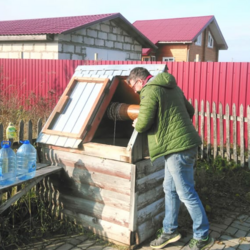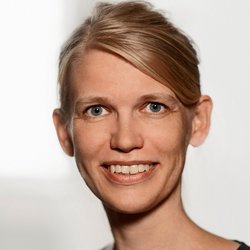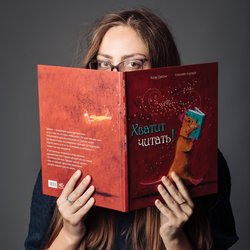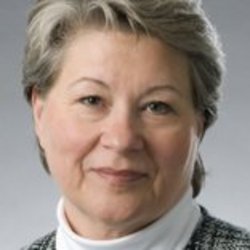Russian studies at Aarhus University offers extensive language, cultural and social training in an important world region, covering eleven time zones from Kaliningrad to Kamchatka. Learning Russian language is your starting point for a dialogue with not only the around 145 million inhabitants of the Russian Federation, but also the millions of Russian-speakers living in the former Soviet space and across the world. Russia’s vast natural resources, its energy-based economy, and increasingly aggressive foreign policy are a major issue for its East European neighbors, the EU and Nordic countries. Russia’s rich and dramatic cultural history has left us a world heritage of visual arts, literature, and cinema, and Russia continues to impact arts and sciences today. You will study the region as a disciplinary whole: gaining expertise in culture, society, politics and history and acquiring academic and analytical skills contributing towards future employability.
Degrees and Opportunities
The 7-semesters BA program in Russian studies at Aarhus University is a language-based area study, taught by an international staff of experts. The first two semesters provide you with intensive language training by native-speaking specialists in Russian as a foreign language. Furthermore, the two courses “Russia Now” and “Russian history” introduce you to contemporary society, politics, and culture and deepen your understanding of current developments by placing them in a broader historical perspective. These courses are taught in English and Danish. You obtain general study skills to improve your academic writing and reading and work both independently and in study groups.
In the 3rd semester language training advances to the intermediary level, a course in Russian identities, cultures and society prepare you for the 4th semester abroad at a partner university in one of the Baltic states where Russian is widely spoken. In “studium generale” you receive a general introduction to academic theories and methods, and here you meet and exchange with students from our Global studies sister programs in Brazil, India, China and Japan studies.
In the 5th and 7th semester you use Russian language sources actively and you train Russian text comprehension, translation from Russian to Danish, oral language proficiency, while advanced courses on Russian culture & history and society & politics prepare you for your BA-project (Sem. 7). For an overview of the program structure and the academic regulations, click here.
A BA degree in Russian studies combines well with many other disciplines. At our own department of Global studies, we offer a minor (tilvalg, 5th and 6th semester) in “Addressing global challenges,” read more here. At MA level, you can further improve your competences and language skills at the 4-semesters master program in Global Area Studies (GLAS). The 1st and 2nd semester consist of a combination of joint lectures with students with a background in Brazil, India, China and Japan studies, and small, intensive Russian area classes and language training. The 3rd semester you are free to arrange a Russia-related internship home or abroad, before finalizing your MA-thesis in the 4th semester. Read more about GLAS here.
Graduates from the Russian program pursue career paths within fields as different as communication and journalism; teaching and training; international trade and tourism; public administration; defense and security, research.
Partners and Activities
You spend a full semester abroad at a partner university in a part of the Baltic states where Russian is widely spoken
Our students often go on internships at the Danish Embassies and Cultural Institutes in East European and Central European countries.
Students sometimes arrange joint trips to various destinations in Eastern Europe and some engage in Silba Aarhus – Initiative for Dialogue and Democracy, a non-profit and cross-political youth organization that works for democracy and bridge-building.

Academic Background:
DPhil Sussex. I did my MA at Queen Mary, London in a very interdisciplinary department of cultural studies. My BA was from Lancaster in English and Sociology.
My research in a nutshell:
Basically I use micro-methods to talk in a novel way about macro social and economics issues. More specifically this means adopting the
classic method of anthropology - ethnography: living in the community you are studying, participating, engaging and taking seriously what people say and do while remaining objective. I then use that as a lens to study things like neoliberal policies (changes in welfare conditions for families and unemployed, the degree of control and surveillance at work, the general 'common sense' discourse in the media and society at large about how an individual should look after themselves). Other things that are more 'macro' are how bureaucracies work and interact with people, informal economy, civic activism, etc.
What is your favorite place in Russia and why?
I really love Moscow because it's the biggest global city in Europe and you can pretty much do/see/hear anything there. People don't realise how fast Moscow changes. It's as hypermodern as any Chinese or Japanese city, and yet right at its centre you can meet old
wooden houses with pensioners living in them and beautifully quiet garden yards, family-run shops and genuine local music or culture scenes. My research is in a small town, so coming back to Moscow from time to time is a real treat. I just love walking around with my Russian friends and talking about the buildings and streets we explore together.


Academic Background:
I hold a Ph.D. from the Johannes-Gutenberg-University of Mainz, Germany, awarded with distinction 2014, and an M.A. in Comparative Literature with Russian form the University of Copenhagen. I am author of an illustrated monograph on contemporary Russian book design and print culture The New Russian Book. A Graphic Cultural History (New Directions in Book History, Palgrave, 2017). Before entering academia, I have worked as curator at the Workers’ Museum in Copenhagen and as Danish teacher at the Maxim Gorky Literary Institute in Moscow.
My Research in a Nutshell:
My research is focused on Russian visual and material culture, Soviet and post-Soviet print culture, and media history. Recent research projects are related to Soviet children’s books, the history of Soviet paper, and late Cold War ‘book diplomacy’.

Academic Background:
IntM in Children’s Literature, Media & Culture, University of Glasgow, Aarhus University, University of Tilburg (2020–2022, awarded with Distinction)
MSt in English 1830–1914, University of Oxford (2017–2018)
MA in Linguistics and Translation Studies (English and French), Nizhny Novgorod State Linguistic University (2006–2011)
My research in a nutshell:
I am part of the joint research project PUBLISH: Children’s Books in the Russia-Ukraine War, where I examine how contemporary Russian children’s and young adult literature depicts the current war, despite ever-increasing censorship laws. I explore how publishers and authors navigate this environment by producing new titles about war, as well as reprinting relevant titles from their back catalogues, commissioning more translations of war-related books, and publishing non-fiction titles on adjacent topics like dictatorship, fake news, and democracy. This emerging body of work also influences portrayals of past wars, challenging historical taboos and state-sanctioned hegemonic rhetoric.
Other research interests include translation and circulation of children’s literature, ABC books, and migration narratives in picturebooks and graphic novels.
What is your favourite book?
One of my all-time favourite books is Timm Thaler, or The Traded Laugh (1962) by James Krüss. I remember a special cabinet in my school library filled with beautifully bound children’s book from the world’s literature series and those books were strictly not allowed to be taken home. But I was given special permission (as a reward for good behaviour). In the lilac-coloured volume with a sailboat on the cover, I found the story of Timm Thaler, a boy who sold his laugh (and with it, his smile) in exchange for the ability to win any bet. Until the age of five, I refused to smile in photos and although I never made any such deals, this coincidence always amused me.

Academic Background:
I have a PhD in Russian as a foreign language from the University of Leningrad (Skt. Petersburg) and have taught Russian at university for over 40 years both in Russia and in Odense and Aarhus.
My research in a nutshell:
I have done research in the field of ethnolinguistics – how language reflects culture – but as a teaching associate professor, the focus of my work is teaching rather than research, so I use my expertise in ethnolinguistics to show our students how the language can help them understand the culture. Recently I have devoted my time to developing teaching materials to help our students pick up the Russian language more effectively. I have also been participating in a project financed by the National Center of Foreign Languages, where my students are partnered with Russian students who are learning Danish, so that they can practice with each other and discuss various topics, which is tremendously helpful both for learning the language and familiarizing themselves with the culture.
What is your favorite book?
My favorite book is Dostoyevskij’s “The Brothers Karamazov”. First of all, this novel captivated me the way a great piece of crime fiction does. And while it is indeed a crime novel, as many of Dostoyevskij’s novels are, the most important thing about it is Dostoyevskij’s thoughts about the “Russian mentality” and about concepts such as the meaning of life, responsibility, what love is and so on.